
Healthy living
Use our expert advice and recommendations to live your best life every day.
Get startedBy clicking a retailer link you consent to third-party cookies that track your onward journey. This enables W? to receive an affiliate commission if you make a purchase, which supports our mission to be the UK's consumer champion.
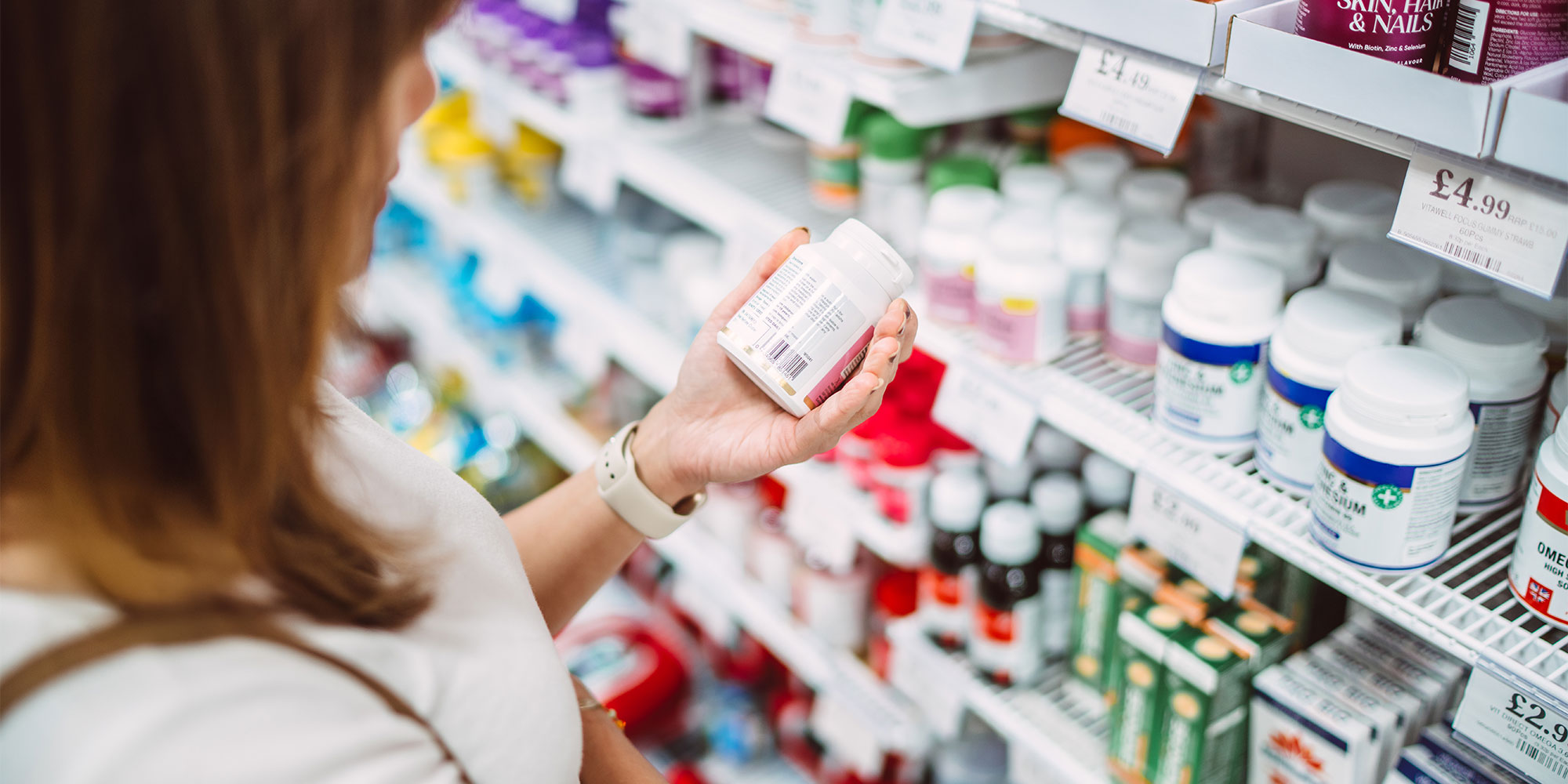
In this article
Adding a vitamin or mineral supplement into your daily routine can feel like a simple way to protect yourself, but in most cases the evidence to support their use isn't very clear cut.
A study of more than 20,000 adults published in the medical journal BMJ Open in 2020 found no difference in diseases or health conditions between those who took multivitamin supplements and those who didn't.
However, the study did find that taking supplements can make you feel better (known as a placebo effect). Supplement users in the study self-reported better overall health compared with non-users by 30%.
With this in mind, you might think there's no harm in taking supplements if they at least make you feel better, but they're not risk-free and can be pricey, so you'll want to know it's worthwhile.
It's also important to remember, supplements aren't a shortcut to good health – popping a pill isn't a substitute for a healthy, balanced diet, so before you splash the cash, it's worth looking at lifestyle measures you can improve first.
Before adding supplements to the mix, always check with a health professional first if you have any medical conditions or are taking medications, in case of possible interactions.

Shefalee Loth, Which? principal researcher and nutritionist
I've covered supplements for Which? for many years, and I've been asked countless times which ones I recommend.
My answer is usually the same: the best way to make sure you are getting enough vitamins and minerals is to look at your diet, and make tweaks there if necessary. If it's healthy and balanced, there's often no need for supplementation.
However, this is not always achievable for everyone, and there are circumstances where supplements can be helpful. Some people may have vitamin deficiencies due to their age, their health or from external factors such as a lack of sunlight.
As we get older, we get less efficient at absorbing Vitamin B12, so older people may need to supplement. It's also relatively common among those who follow a vegan diet. Vegans may also need to make sure they get enough iron, iodine, calcium and selenium. It's possible to get these from a vegan diet, but it's a little harder.
It can be confusing to work out what you really need, and what's the best format to take, particularly when we are bombarded with marketing claims from companies, and have thousands of supplements to choose from.
That's why Which? now reviews supplements. We look at the latest evidence and research data, and spend hundreds of hours poring over ingredient labels to uncover the best products. We also independently test any products we recommend as Best Buys, so we can be sure they contain what they claim to.
Prefer to listen rather than read? Hear direct from our experts in our podcast covering the supplements you do and don't need.

There is one supplement that everyone in the UK should take, and that's vitamin D.
Our main source of vitamin D is from sunshine, but in the winter months in the UK, you can't get enough as UV levels are too low, so it's recommended that everyone takes a 10 microgram (400IU) vitamin D supplement daily between October and early March.
Vitamin D is important for your immune health and for healthy bones and teeth – and a deficiency means that you can't absorb calcium from food, which can lead to weakened bones or rickets in children.
It's found in some food such as oily fish, egg yolks, red meat, liver, mushrooms that have been grown in sunlight, and fortified breakfast cereals or spreads - but it is very difficult to get enough Vitamin D from your diet alone.
Some people are at higher risk of vitamin D deficiency and should take a supplement all year round. These include people with darker skin, people who cover their skin fully when outside and those who are inside a lot.
We reviewed supplements from all the biggest brands in a variety of formats (tablets, sprays, gummies and more) to uncover the best vitamin D supplements to buy
There are a few key vitamins and minerals that people are more likely to be deficient in.
An October 2025 review of UK nutrition intakes in the Food and Nutrition Sciences journal (based on 2019-2023 data) found that - along with Vitamin D - riboflavin (vitamin B2), calcium, potassium, iodine and selenium all fell below dietary recommended intakes in the UK.
Folate (Vitamin B9) was also well below the recommended level, particularly in women of childbearing age, and so was iron, especially among girls and women.
We've covered some of the key ones here:

Iron plays a vital role in red blood cells, which carry oxygen around your body. It's also important for immune health and cognitive function. If you have an iron deficiency, you may feel tired, lethargic, be short of breath, look pale and be more vulnerable to infections (see NHS guide to iron deficiency for more).
Most people should be able to get all the iron they need from their diet. Dietary sources of Iron include red meat and offal. It's also in chicken and fish, but in lower amounts.
Plant sources of iron include lentils, chickpeas, beans, seeds and nuts, dried apricots, tofu, and fortified breakfast cereals. When taking a plant source of iron, you should ideally have it with a food or drink containing vitamin C, as this will help its absorption.
Avoid drinking tea and coffee, dairy or eating bran-containing cereals at the same time, as they can inhibit iron absorption, as can turmeric.
Children need higher levels of iron as they're growing. Women also have higher requirements when they menstruate or are pregnant.
Iron supplements can have unpleasant side effects, including constipation and stomach aches, but there are varying formats available, so it's worth shopping around if you find the basic tablets cause you issues.
It's important not to overdo it with iron, as taking too much can be problematic, too. Check with a health professional, such as a pharmacist, if you're unsure what's right for you.

Vitamin B12 helps make red blood cells and keeps your nervous system functioning. It also helps release energy from the food you eat.
It is mainly found in food of animal origin, including meat, fish, milk, cheese and eggs, but non-animal sources include yeast extract (such as Marmite) as well as fortified breakfast cereals.
If you eat these foods, you're unlikely to need a supplement, even if you're vegetarian; however, if you're vegan, you may need a vitamin B12 supplement.
A vitamin B12 deficiency can leave you tired, lacking energy, feeling confused, having trouble concentrating and having problems with your memory. It can also lead to mouth ulcers. See the NHS guide to B12 deficiency for more.
As we age, our ability to absorb vitamin B12 decreases, so deficiencies are common in older adults. Symptoms can be confused with dementia in some cases. If you're concerned, your doctor can check your B12 levels with a blood test and recommend supplements if necessary. For severe deficiencies, they will sometimes prescribe vitamin injections.
Find out more about vitamin B12 deficiency and who's most at risk
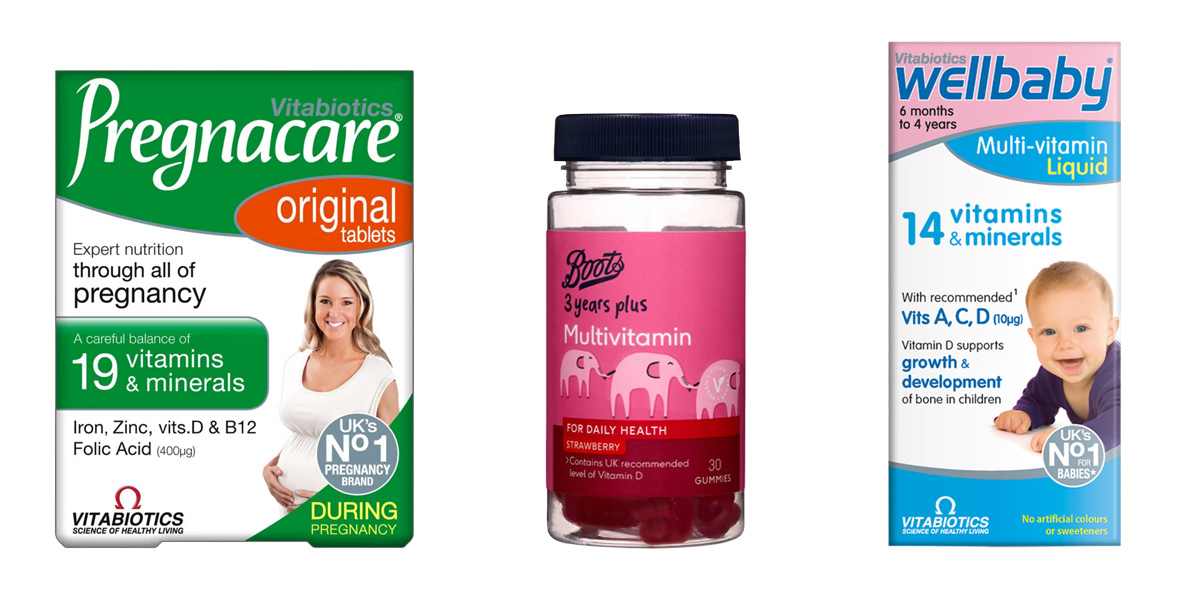
The NHS recommends that women take 400 micrograms (µg) of folic acid a day while trying for a baby (ideally for three months before) and during the first 12 weeks of pregnancy. It's hard to get the required amount from diet alone.
Folic acid helps to prevent neural tube defects in babies, such as spina bifida. Your doctor or midwife may recommend taking folic acid throughout pregnancy, particularly if you are at risk of anaemia or are anaemic.
You don't need to take a multivitamin for pregnancy, but if you do, make sure it's a specific pregnancy one. General-purpose multivitamins contain vitamin A, and too much of this can be harmful to a foetus. Avoid cod liver oil supplements for the same reason.
Children aged six months to five years old should take a multivitamin containing vitamins A, C and D each day, according to the NHS/government advice.
Make sure you buy multivitamins designed for kids. Adult or general-purpose multivitamins contain doses that are too high for children. And don't give more than one supplement at a time, as you may accidentally double up on some nutrients.
If your baby is formula-fed (and having more than 500ml a day), they don't need a multivitamin as formula milk is already fortified.
Breastfed babies should take a vitamin D supplement each day from birth, regardless of whether the mother is taking a vitamin D supplement.
Get more advice on vitamin D for babies and children and pregnancy vitamins

Use our expert advice and recommendations to live your best life every day.
Get startedMost adults don't need multivitamins, and they aren't a substitute for a healthy, varied and balanced diet. There are some things, such as fibre or polyphenols, that you won't get from a multivitamin.
However, there are some cases where they might be helpful.
If you have an inconsistent, restricted or limited diet, you might be lacking certain nutrients. This might be due to an allergy, intolerance or even irregular working patterns that make it hard for you to eat balanced meals.
Older people may also benefit from a multivitamin. As you age, your ability to absorb nutrients from food decreases. Some people may also have malabsorption issues (eg people with Coeliac or Crohn's disease), and some medications can affect nutrient absorption, as do certain types of surgery on your gastrointestinal tract.
In these cases, and others, a multivitamin can offer you a 'safety net', although do check with your GP if you're on medication in case of possible interactions or contraindications.
If you do need a multivitamin, make sure you pick one with all the nutrients you need. We've reviewed multivitamin supplements from brands including Boots, Centrum, Holland & Barrett, Seven Seas and more, and found levels, range of nutrients and dose can vary significantly. See our independent expert guide to the best multivitamin supplements to buy.

Find the right private health insurance policy using the service provided by LifeSearch.
Find out moreThere is a wide range of supplements available that may be beneficial for some people.
We're in the process of reviewing the most popular categories. For each one we review, we'll tell you what the evidence is for any benefits, who might need it and the key safety concerns to be aware of.
See our most recent reviews of the best magnesium supplements and best probiotic supplements for tailored advice and expert insights into the products worth buying.
Beyond vitamin D, if you're healthy, and eat a varied and balanced diet including meat, fish, dairy products, beans, pulses, nuts, seeds and your five-a-day of fruit and vegetables, you're very likely getting all the nutrients you need.
A daily pill may seem a convenient choice, but evidence shows that you can't replace a healthy diet with a supplement. For example, a diet high in fruit and vegetables is proven to reduce your risk of certain cancers, but there's no evidence that a multivitamin does the same.
Food supplements don't need to prove they work to be sold. There are rules around what exactly they can claim to do health-wise, but there are ways around these that can give the impression they are backed by science. So there are plenty of supplements on the market that contain ingredients for which there are no proven health benefits.
Here's a run-down of some types of supplements you can probably steer clear of, and why:
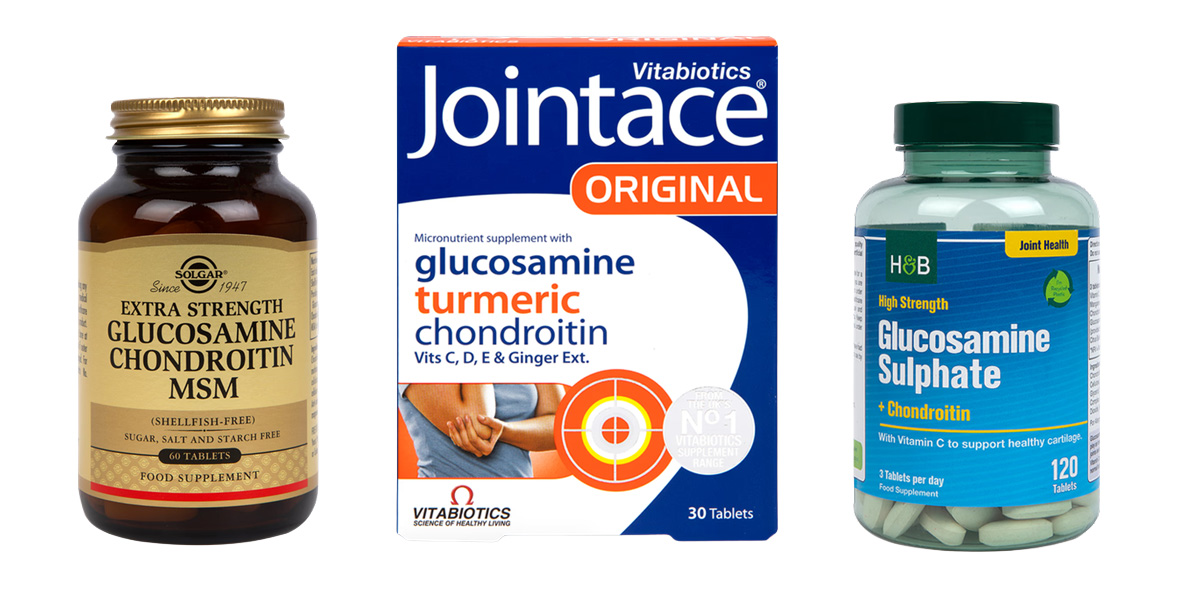
Glucosamine is found naturally in your cartilage, ligaments and tendons. If you have any issues with these you can experience joint pain.
Glucosamine is therefore marketed as a supplement for joint health, mobility and flexibility – but there's not enough evidence to conclusively prove taking glucosamine helps with any of these. As a result, glucosamine has no authorised health claims.
So why might you still see ads that suggest otherwise? It's clever marketing. Manufacturers can include other nutrients, such as Vitamin C, which is proven to help support bones and cartilage - this allows them to make on-pack claims around supporting bones and cartilage.
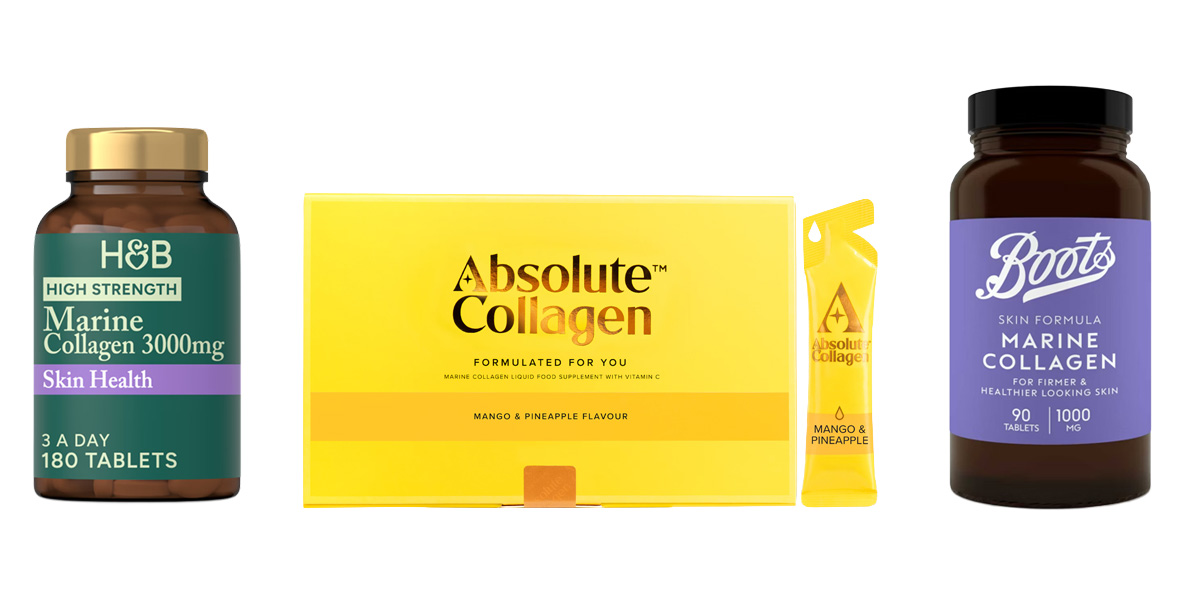
Collagen is a protein that keeps your skin strong, supple and elastic. Levels naturally decline with age, which has provided an opportunity for collagen supplements.
Unfortunately, consuming collagen doesn't mean it will become collagen or go where you want it to in your body. When you consume collagen, your body breaks it down into amino acids and rebuilds it into the proteins you most need.
The European Food Safety Authority has said that there isn't currently enough evidence to support a health claim that collagen could improve skin health.
We know it's popular though, and this is one we'll be looking into further soon. Watch this space.
Health products you don't need - we unpick popular trends, from hair loss shampoos to functional mushrooms, to find out if the benefits are really backed by science
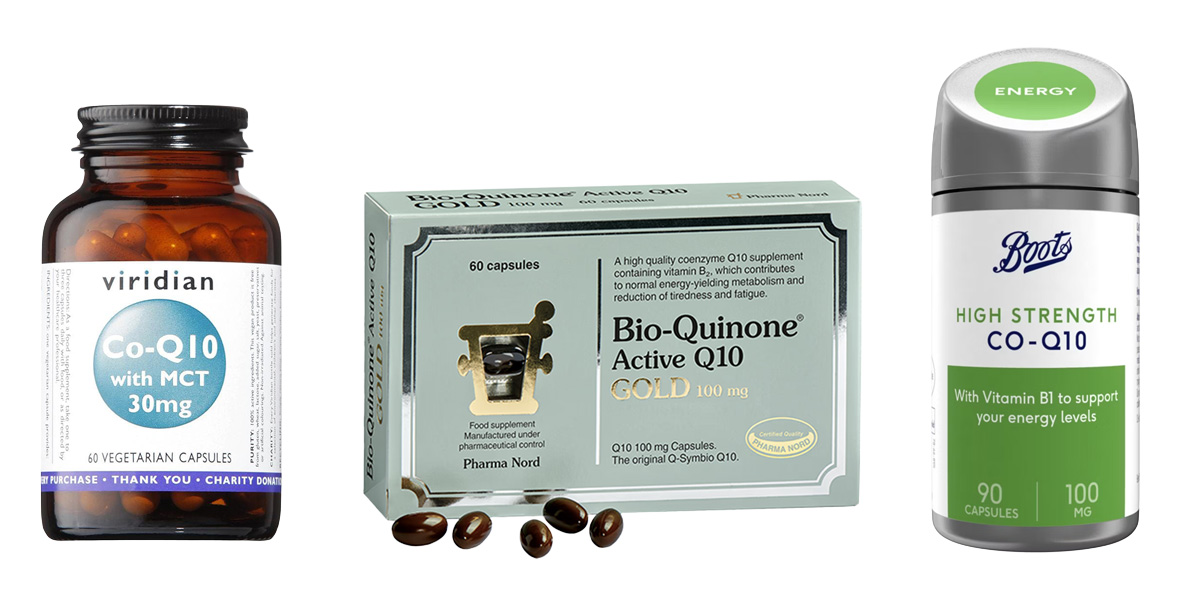
Your body makes CoQ10 in your liver. It helps provide energy to cells and is an antioxidant. It is also found in foods such as meat and vegetable oils.
Supplements containing it sometimes make claims relating to improved energy levels, brain function, cholesterol or blood pressure. However, it has no authorised health claims.
Instead, these supplements often contain other ingredients such as B-vitamins, which do have authorised claims in these areas.
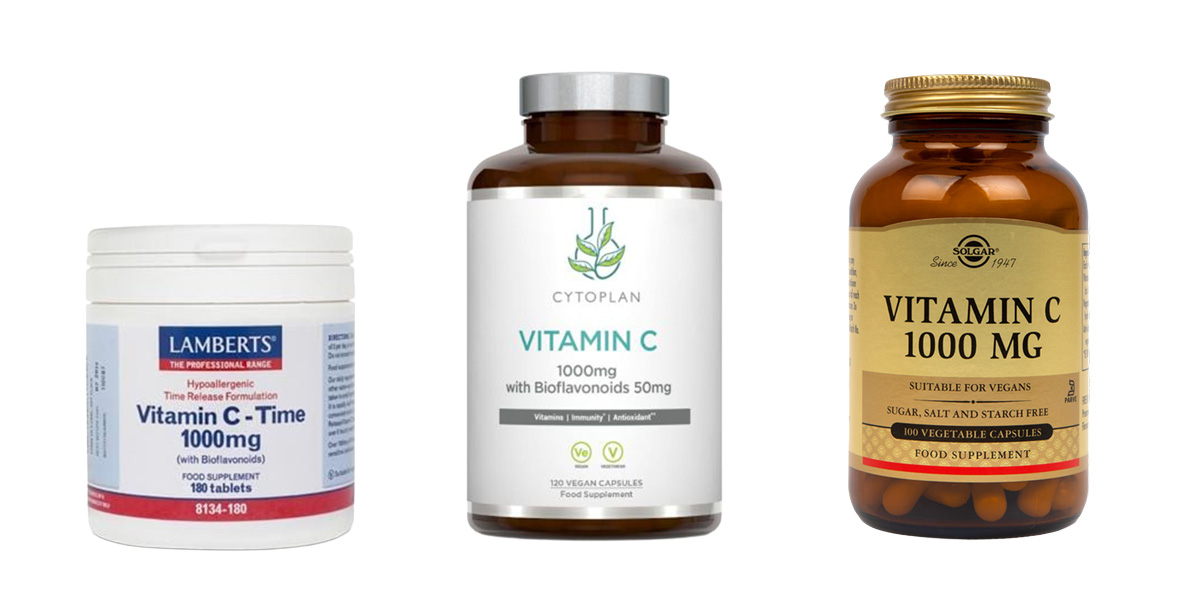
However, there are lots of vitamin C supplements on the market that contain 1,000mg – more than 20 times what you need in a day – and people often take these to fight colds.
While vitamin C plays a role in keeping your immune system healthy, there isn't currently enough evidence that high-dose supplements can keep a cold at bay.
As vitamin C is a water-soluble vitamin, your body also can't store it. Once your body has used what it needs each day, it excretes any excess in urine, so you're literally flushing your money down the toilet.
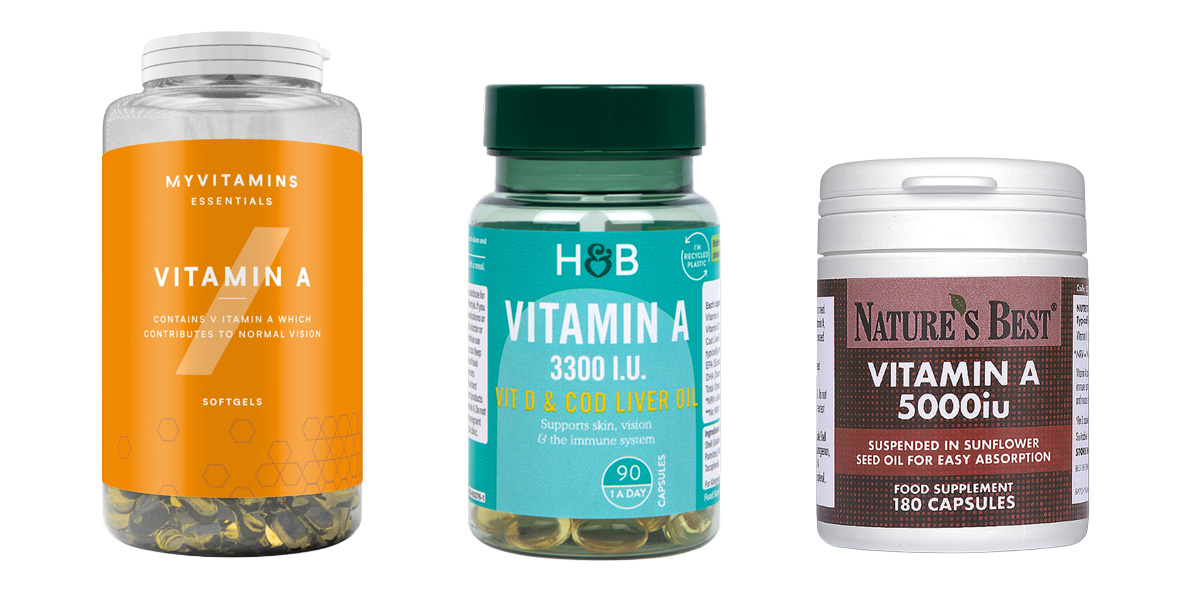
Vitamin A is a fat-soluble vitamin, and can build up in the body. Over time, taking too much can cause health issues, such as an increased risk of bone fracture.
Watch out if you're taking a fish oil supplement as well as a multivitamin, as it may be in both, so you could end up exceeding the recommended dosage without knowing it - always check the labels carefully if you take several supplements.
Don't exceed 1.5mg per day and avoid supplements containing vitamin A if you are pregnant or trying to conceive.
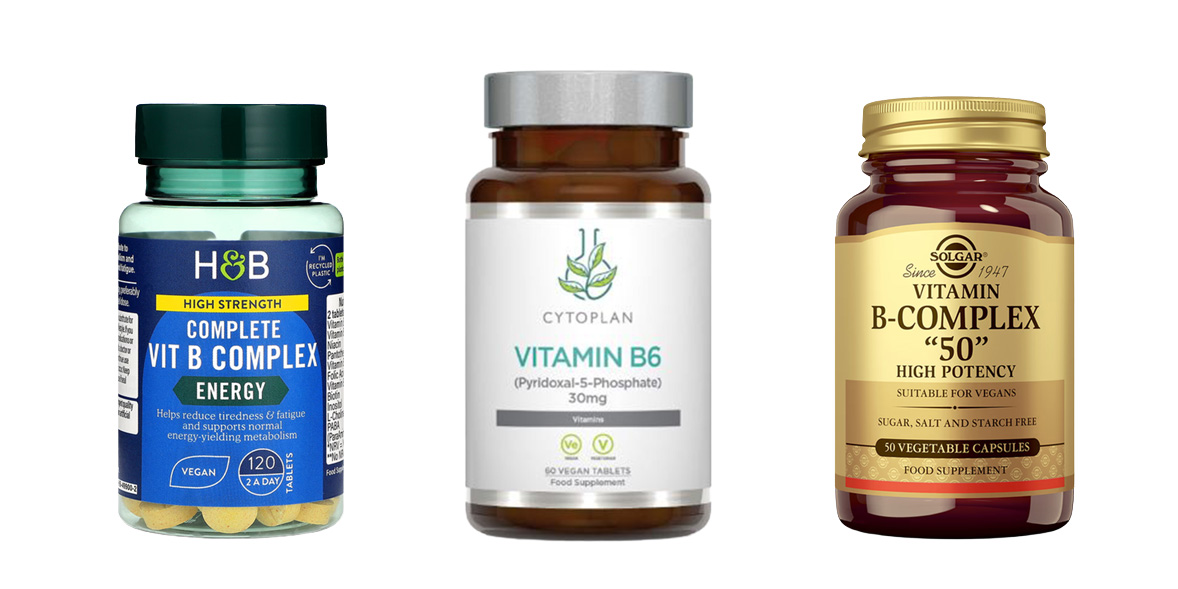
The daily amount of B6 needed by adults is 1.2mg for women and 1.4mg for men, and you should be able to get all you need from your daily diet. It's often in fortified foods and added to supplements to support health claims, so it's worth keeping an eye on your intake.
You shouldn't take more than 10mg of B6 a day in supplement form unless advised by a doctor.
If you regularly take very high doses of 200mg or more a day, the NHS warns this can lead to tingling sensations or a loss of feeling in your arms and legs (peripheral neuropathy), which can be permanent.
Supplements in risky doses sold online put consumers at risk - see the products that shocked our researcher when she investigated supplement sales

A balanced and healthy vegan diet containing a wide range of fruit and vegetables, beans, nuts, seeds and wholegrains should provide most of the nutrients you need.
It's not true that vegan diets are necessarily lacking in protein. Plant-based sources of protein include lentils, chickpeas, beans, tofu, nuts and seeds. Soya or tempeh burgers and sausages are also good sources.
However, there are some nutrients that can be harder to get from a vegan diet, such as iron, iodine and vitamin B12.
You'll need to plan your diet to make sure you're getting enough calcium and selenium, too, by including fortified plant milks, green leafy veg and brazil nuts.
Vitamin B12 is naturally found in animal foods, so it can be difficult to get if you're following a vegan diet. Some foods are fortified with it, such as Marmite and other yeast extract spreads, some breakfast cereals and some plant-based milks. However, getting enough from these (1.5 micrograms a day) might be hard, so you may want to consider taking a vitamin B12 supplement or one designed for vegans.
Is Zoe worth it? Our nutritionist tried the popular nutrition app and gut health test. Get her verdict on the new, cheaper version
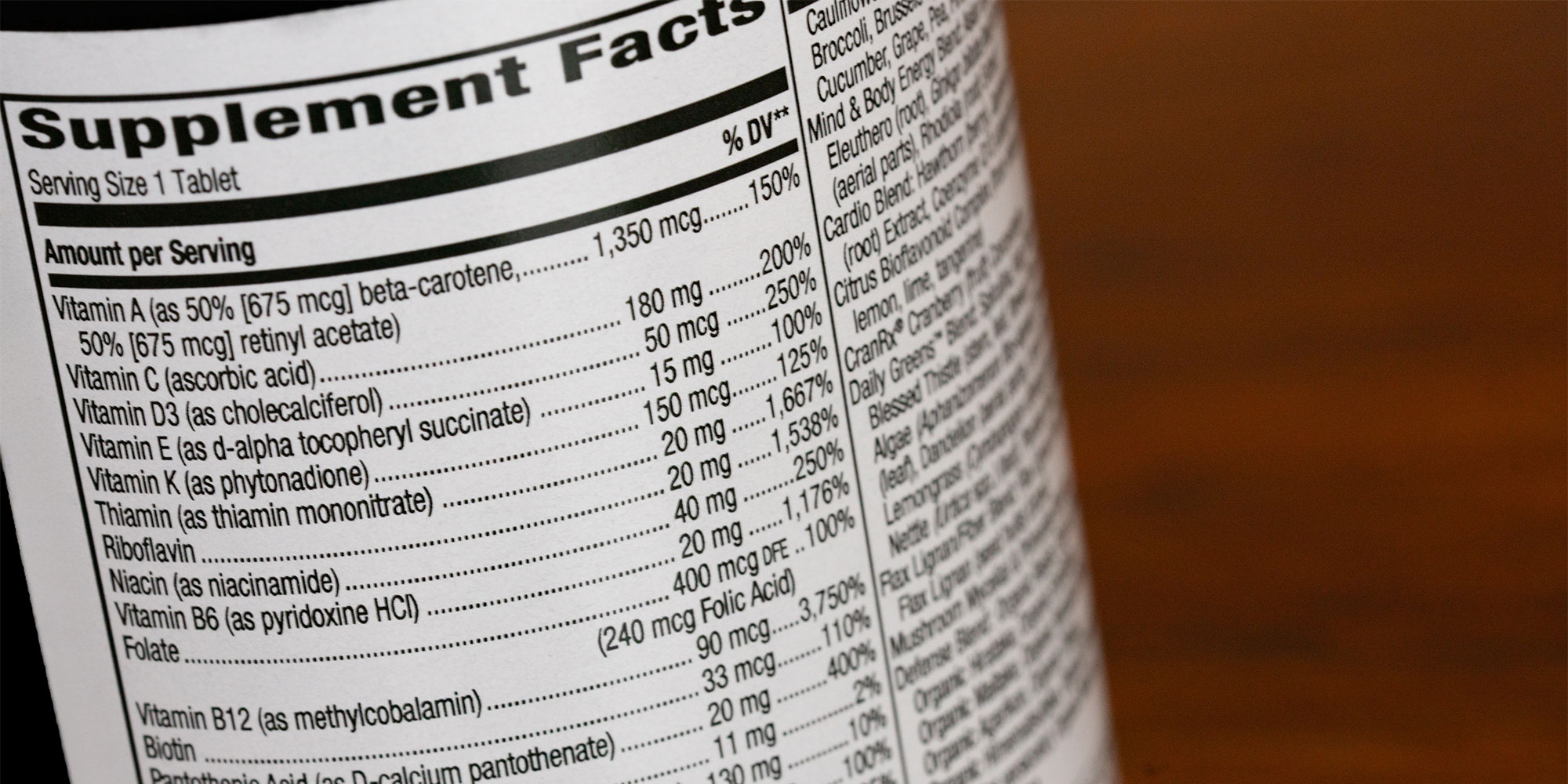
Speak to your GP, pharmacist or a registered dietitian for advice, particularly if you have any existing health issues or are taking medication, as some supplements may worsen symptoms or interact with other things you are taking (or each other).
Be wary of unknown brands promising you the world on social media, or buying from online marketplaces where you might not be able to verify a product's provenance. Where possible, buy from established retailers and brands. Check the dose against NHS guidance. Companies love to market 'high-strength' products as a benefit, but more is not always better.
By law, supplement labels must list how much of a nutrient or nutrients a supplement contains and how much of your daily reference nutrient intake (RNI) it provides, as well as other key information about dosages and storage instructions.
Remember to read before you take it, and even if you've taken it before, it's worth looking because formulations can change. If you are taking multiple supplements, it's important to check you aren't accidentally doubling up on some nutrients and overdoing it.
High street shops often have offers on their supplement ranges, such as three for two or buy one, get one half price, which can help to lower the cost. You can stock up on staples this way - such as vitamin D to last you through the winter - but check packaging for use-by dates before you buy.
Supplement prices can vary considerably, with some formats such as sprays and gummies generally costing more than tablets. Make sure you check the dose. In some cases (particularly gummy vitamins) it may be more than one pill per day, so if you're comparing two 30-packs you might not realise you're not comparing like for like. Our supplement reviews for multivitamins, vitamin D and magnesium all provide the cost per daily dose, and we flag products that are notably cheaper than rivals, so you can easily find the best value.
In the case of water-soluble vitamins (B-vitamins and vitamin C), your body can't store any excess, so once it's used what it needs, any excess will end up in the toilet.
For fat-soluble vitamins (A, D, E and K), consuming more than you need over a prolonged period can harm your health. Your body can't excrete excess and so stores it – in the case of vitamin D, this can cause a build up of calcium in your body which can weaken your bones, and damage the kidneys and heart.
Remember, you'll also be getting nutrients from your diet, so try not to take supplements that contain much more than 100% of your RNI (recommended nutrient intake) unless advised to by a doctor - for example, they will sometimes advise a short course of higher-strength vitamins in the case of severe deficiencies.
As well as potentially causing you harm, you could be wasting your money. Read our article on whether or not you are supplementing safely for more information.
Which? Limited is registered in England and Wales to 2 Marylebone Road, London NW1 4DF, company number 00677665 and is an Introducer Appointed Representative (FRN 610689) of the following:
1. Inspop.com Ltd for the introduction of non-investment motor, home, travel and pet insurance, who are authorised and regulated by the Financial Conduct Authority (FCA) to provide advice and arrange non-investment motor, home, travel and pet insurance products (FRN310635). Inspop.com Ltd is authorised and regulated by the Financial Conduct Authority (FCA) to provide advice and arrange non-investment motor, home, travel and pet insurance products (FRN310635) and is registered in England and Wales to Greyfriars House, Greyfriars Road, Cardiff, South Wales, CF10 3AL, company number 03857130. Confused.com is a trading name of Inspop.com Ltd.
2. LifeSearch Partners Limited (FRN656479), for the introduction of Pure Protection Contracts and Private Health Insurance, who are authorised and regulated by the FCA to provide advice and arrange Pure Protection Contracts and Private Health Insurance Contracts. LifeSearch Partners Ltd is registered in England and Wales to 3000a Parkway, Whiteley, Hampshire, PO15 7FX, company number 03412386.
3. HUB Financial Solutions, for the introduction of equity release advice and an annuity comparison service, who are authorised and regulated by the Financial Conduct Authority (‘FCA’) to provide advice and guidance on financial products for those who have retired or are approaching retirement (FCA Firm Reference Number: 455713). HUB Financial Solutions is registered in England and Wales to Enterprise House, Bancroft Road, Reigate, Surrey RH12 7RP, company number 05125701.
4. Alan Boswell Insurance Brokers Ltd (FRN 301), for the introduction of non-investment landlord insurances, who are authorised and regulated by the Financial Conduct Authority to provide advice and arrange insurance contracts. Alan Boswell insurance brokers Ltd is registered in England at Prospect House, Rouen Rd, Norwich NR1 1RE, company number 02591252.
Other financial services:
Mortgage service provided by London & Country Mortgages (L&C), Unit 26 (2.06), Newark Works, 2 Foundry Lane, Bath BA2 3GZ. London & Country are authorised and regulated by the Financial Conduct Authority (registered number: 143002). The FCA does not regulate most Buy to Let mortgages. Your home or property may be repossessed if you do not keep up repayments on your mortgage.
We do not make, nor do we seek to make, any recommendations or personalised advice on financial products or services that are regulated by the FCA, as we’re not regulated or authorised by the FCA to advise you in this way. In some cases, however, we have included links to regulated brands or providers with whom we have a commercial relationship and, if you choose to, you can buy a product from our commercial partners.
If you go ahead and buy a product using our link, we will receive a commission to help fund our not-for-profit mission and our campaigns work as a champion for the UK consumer. Please note that a link alone does not constitute an endorsement by Which?.